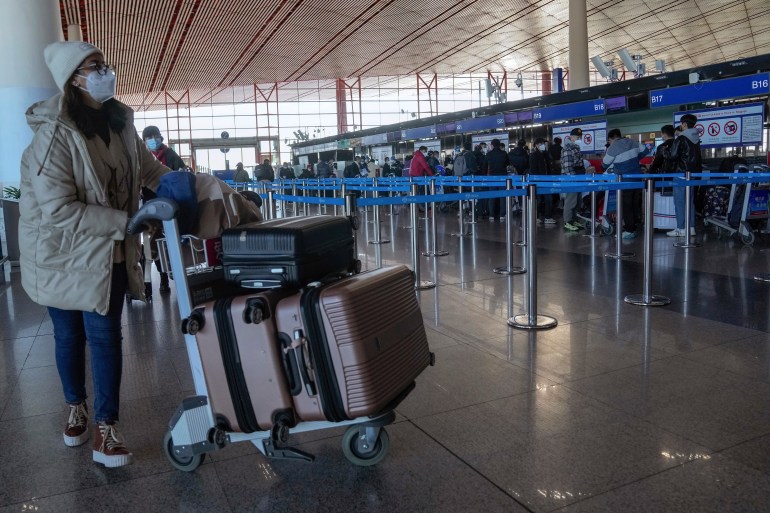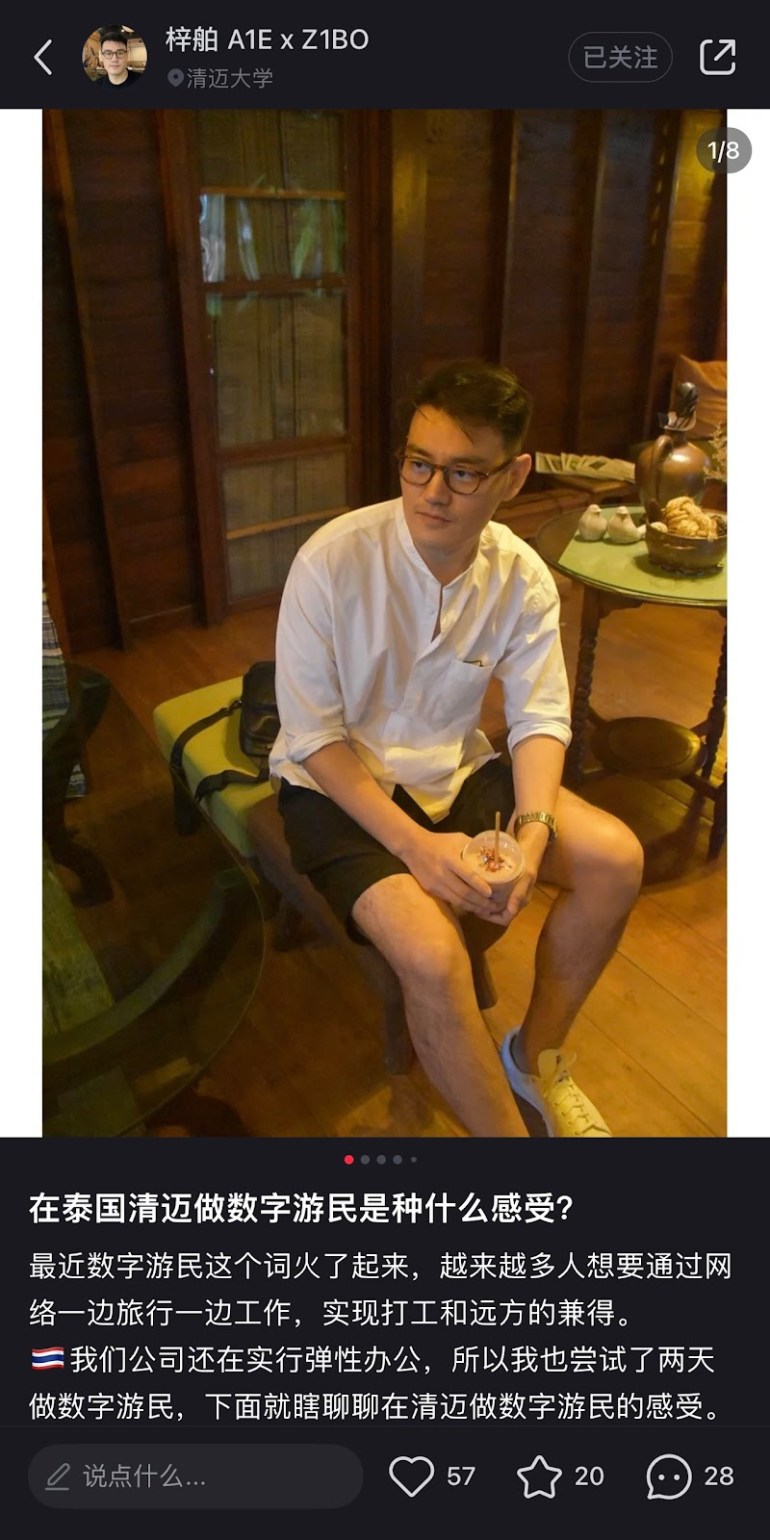In videos on the popular social media and e-commerce platform, influencers paint a picture of paradise that promises something for all.
For stressed-out parents, cheap international schools and the possibility of remote work in an exotic locale await. For retirees, there is affordable healthcare just a stone’s throw from the beach.
“We don’t need our kids to ‘win’ before reaching the finish line,” says a woman in Chinese, over footage of an idyllic-looking Finnish school in Phuket, where English is widely spoken and pupils come from around the world.
“Our kids don’t have to have the highest grades or be the most disciplined. We just want them to enjoy life and be happy.”
The buzz on Xiaohongshu, which translates as “Little Red Book”, comes as China prepares to reopen its borders after three years of the world’s harshest pandemic controls.
Chinese authorities will from Sunday resume passport renewals and scrap quarantine on arrival, which has kept all but a small fraction of Chinese citizens from travelling outside the country since early 2020.
Tens of millions of Chinese people are expected to book flights for overseas holidays over the coming weeks and months.
But others say they are preparing to leave China for good, according to posts on social media platforms such as Xiaohongshu, frustrated at a country they say is increasingly expensive, authoritarian, competitive and difficult to raise a family or retire in.
While it is unclear how many Chinese people have actually emigrated or are seriously considering it, social media posts about discussing a growing “run philosophy”, or “run xue”, have been viewed millions of times.
For well-to-do Chinese, Thailand is an attractive choice, accessible via a relatively short flight and full of property available at a fraction of the price of what is on offer in Chinese megacities such as Beijing and Shanghai.
Chinese already rank as the biggest group of foreign buyers of property in Thailand, according to Thailand’s Real Estate Information Center, with more than 3,500 units snapped up in 2022 at an average of $150,000 each.
More are expected to come looking for a good deal as China’s borders reopen.
In Phuket and Pattaya, realtors say Chinese buyers are scooping up 25-30 percent of new development condos in prime beachside areas.

Xiaohongshu has also become a place for investors to make connections.
In one post, Mei Ren, a businesswoman who relocated to Bangkok, recounted the advice she had received from other users as she faced difficulties getting her restaurant in the Thai capital off the ground.
“All this hard work is about to pay off with a little help from my foreign friends,” she wrote.
Thai tourism authorities expect about 300,000 visitors from China in the first three months of 2023 and five million over the year, as flights are gradually restored to smaller cities and airports reopen.
Thailand took in 10 million Chinese visitors in 2019, accounting for one in four arrivals, before COVID-19 inflicted unprecedented damage on the global travel industry.
The kingdom, which relies on tourism for up to one-fifth of its gross domestic product, was hit especially hard by the collapse of international travel. Thailand’s economy contracted by 6.1 percent in 2020, one of the steepest declines in the region, followed by a 1.5 percent expansion in 2021.
Since Thailand fully reopened its borders in mid-2022, the economy has rebounded strongly.
For tourism and other sectors that rely on foreign investment such as real estate, China’s sudden U-turn away from its tough “zero-COVID” policy has been greeted with relief.
“There are two reasons for Chinese coming here,” Ting Ye, a property manager in Shenzhen who sells real estate in Chonburi on Thailand’s eastern seaboard, told Al Jazeera.
“The first is investment: they buy condos and houses to rent and resell. The second is for living. Many people are looking to live in Thailand due to its cheap costs and international schools, while some elders are also coming here for retirement.”
For some Chinese people, Thailand may offer an antidote to the frustrations encapsulated by popular phrases on social media such as “lying flat” and “involution”, which describe the pains of relentless hard work for little reward in China’s big cities.
On Xiaohongshu, Chinese emigrants to Thailand describe a lifestyle that appears carefree, even lavish.
In one video, a woman going by Cindy gives a tour of an elderly care home in the northern city of Chiang Mai that she says has 24-hour nursing on hand and charges just $1,600 per month.

In another, Alex from Beijing describes the joys of a leisurely work life spent hopping between cafés as a digital nomad in the same city, which is known for its laid-back, slow pace of life.
Many posts involve mothers swapping stories about the benefits of their children growing up in the less frenetic atmosphere of Southeast Asia.
For Sudarat Phakdee, a teacher at One Day Esthetic art school in Pattaya, there is little doubt that the intimacy of her small classes rubs off on the personalities of her young pupils from China.
“They love it here, they seem to be really enjoying themselves because we have a lot of space for them to run around,” Phakdee told Al Jazeera.
“They seem very relaxed and playful.”
